A Kitchen Staple
Mayonnaise is a kitchen staple, but have you ever considered making it from scratch? Homemade mayo isn’t just delicious—it’s incredibly simple to whip up, and it gives you complete control over the ingredients. With a few pantry staples and a little elbow grease (or an immersion blender–my go to), you can create a creamy, flavorful condiment that far surpasses anything you’ll find in a store.
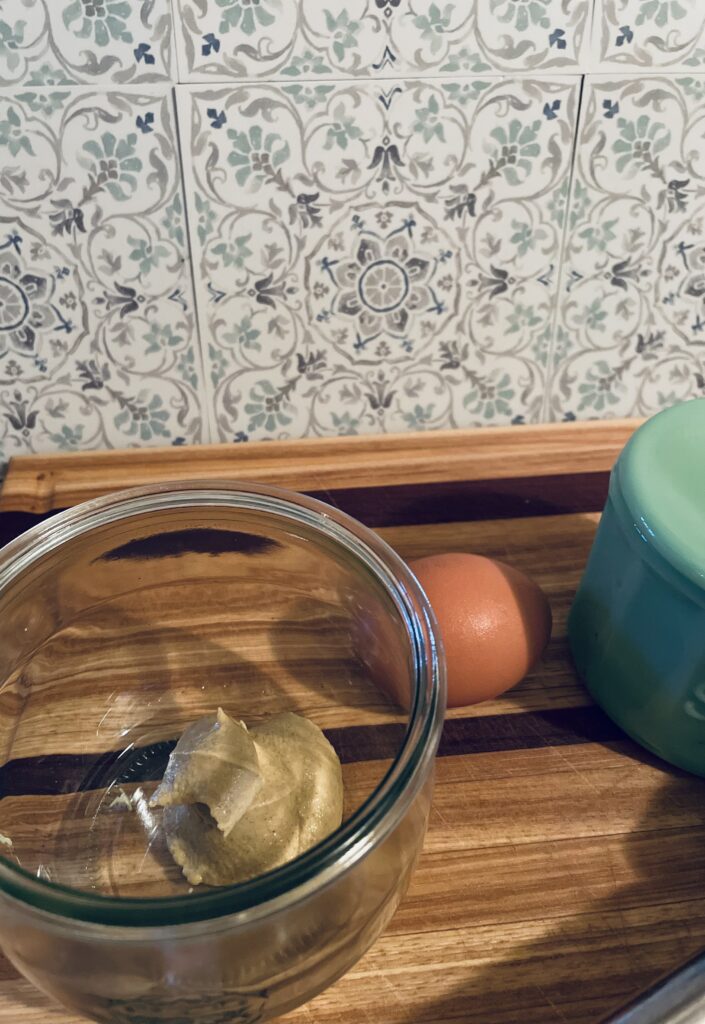
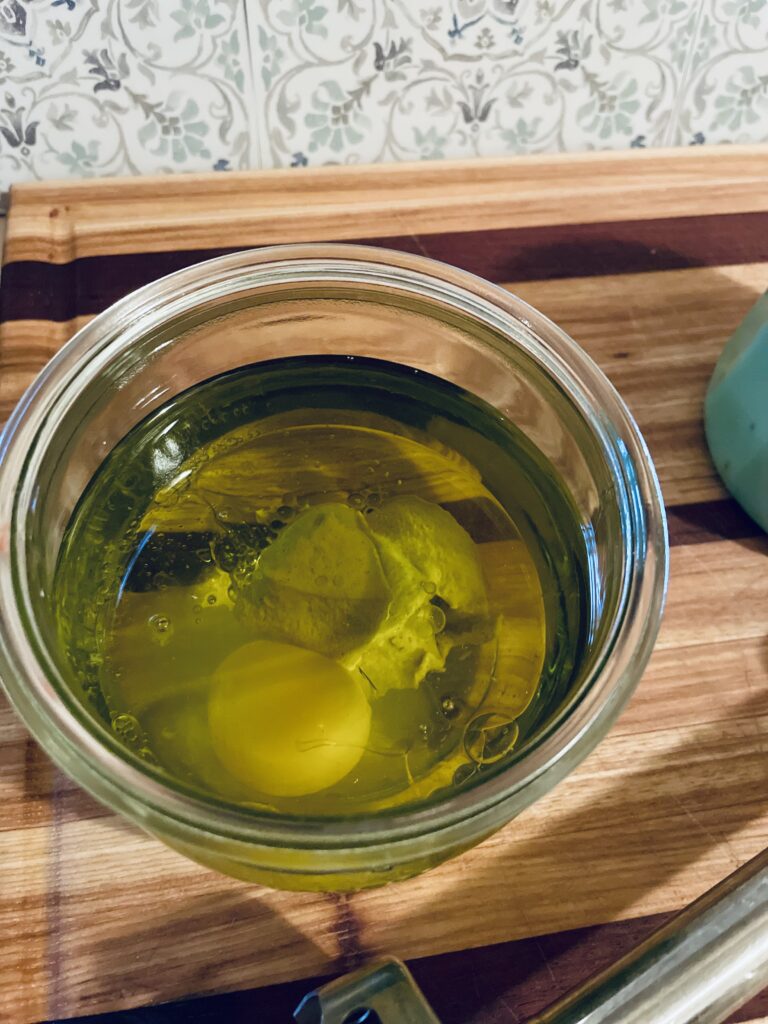
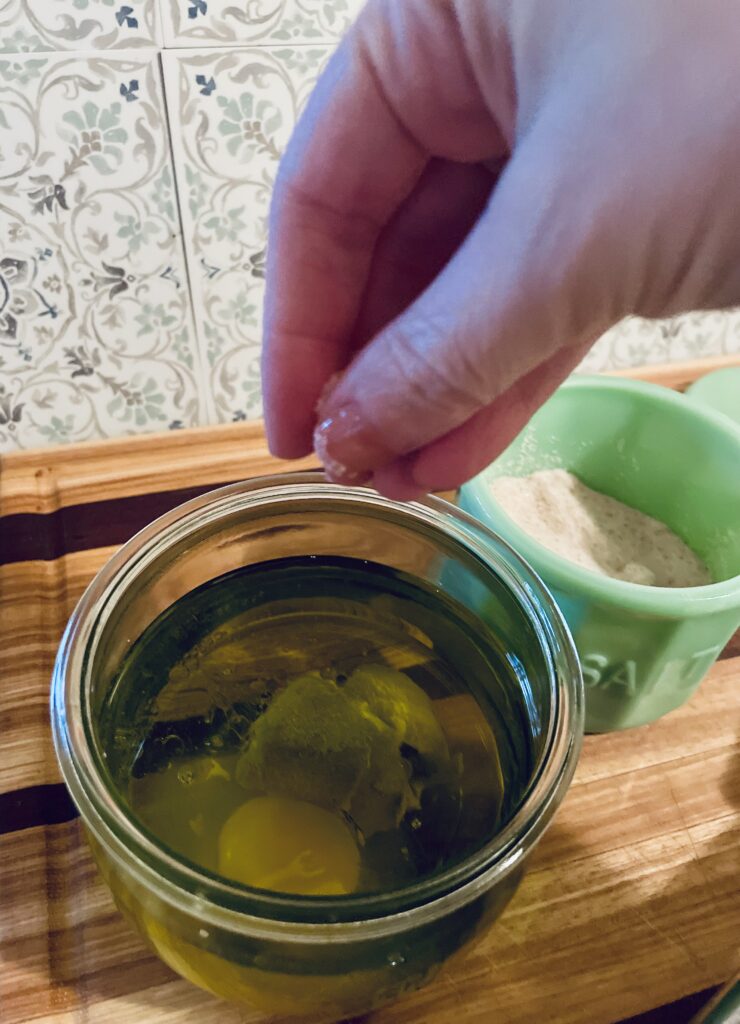
Thanks again for Lisa over at Farmhouse on Boone – I have found a great simple recipe!
Why Make Mayo at Home?
- Control Over Ingredients: Homemade mayo means no preservatives, artificial flavors, or hidden sugars. You know exactly what’s going into it.
- Freshness: Freshly made mayonnaise has a vibrant flavor and creamy texture that’s hard to replicate with store-bought versions.
- Customizable: You can tweak the recipe to suit your taste, adding herbs, spices, or different oils for unique flavors.
- Health Benefits: With the right ingredients, homemade mayo can be a healthier alternative, free from the processed oils often found in commercial brands.
What You’ll Need
The beauty of homemade mayo lies in its simplicity. The basic ingredients are:
- 1 large egg or egg yolk (room temperature)
- 1 teaspoon Dijon mustard
- 1 tablespoon lemon juice or white vinegar
- 1 cup neutral oil (like avocado oil, sunflower oil, or light olive oil)
- Salt to taste
For those seeking richer flavor, a dash of extra virgin olive oil or a pinch of garlic powder can be added.
How to Make Homemade Mayo
- Whisk or Blend: Combine the egg yolk, mustard, and lemon juice in a mixing bowl or blender.
- Add Oil Slowly: Gradually drizzle in the oil while whisking or blending continuously. This slow addition is key to achieving the creamy, emulsified texture.
- Season: Add salt and any additional flavorings to taste.
- Store: Transfer the mayo to a clean jar and refrigerate.
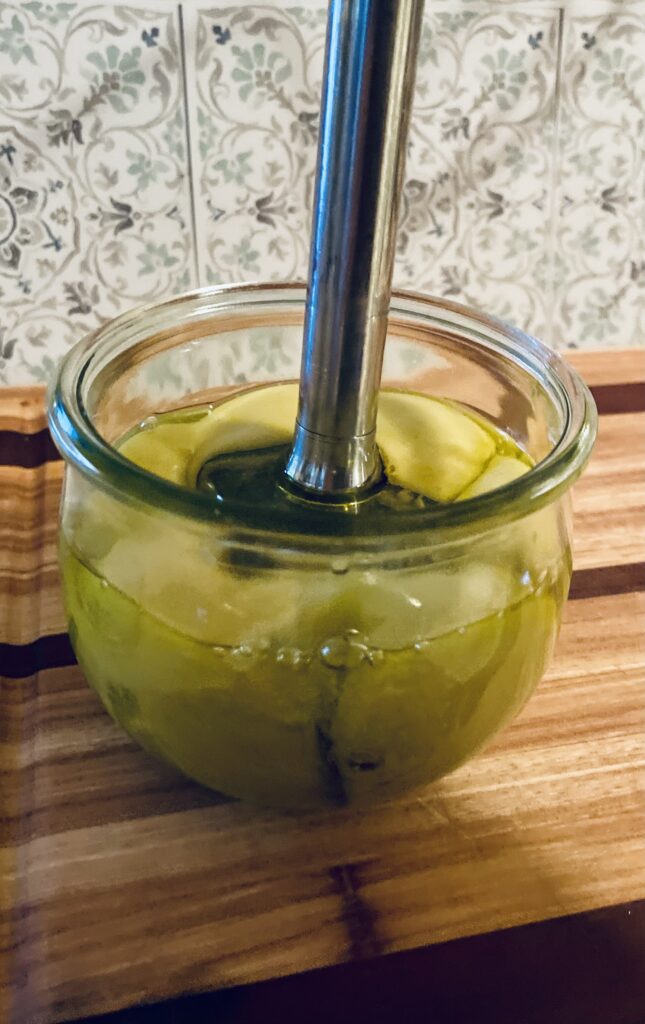
Shelf Life of Homemade Mayo
Homemade mayo lasts about 5–7 days when stored in an airtight container in the refrigerator. Because it lacks preservatives, it’s essential to use fresh ingredients and proper storage to ensure safety and freshness.
Homemade vs. Store-Bought Mayo
| Feature | Homemade Mayo | Store-Bought Mayo |
|---|---|---|
| Ingredients | Fresh, customizable, preservative-free | Often contains additives, sugars, and low-quality oils |
| Flavor | Vibrant and customizable | Standardized, less fresh taste |
| Nutritional Value | Can be made healthier with quality oils | Often contains processed ingredients |
| Cost | Cost-effective with basic pantry items | Can be more expensive over time |
Why Homemade Is the New Trend
People are embracing homemade food for several reasons:
- Transparency: Knowing exactly what’s in your food is empowering.
- Health Consciousness: Many are seeking to eliminate processed foods from their diets.
- Flavor Matters: Freshly made foods simply taste better.
- Sustainability: Making food at home reduces packaging waste and supports sustainable practices.
Choosing the Best Ingredients
The quality of ingredients in your mayo can transform its flavor:
- Eggs: Opt for fresh, pasture-raised eggs for richer color and taste.
- Oil: Neutral oils like avocado, sunflower, or light olive oil work best. Extra virgin olive oil can be used sparingly for bold flavor but may overpower the mix.
- Acid: Freshly squeezed lemon juice or high-quality vinegar adds tanginess.
How to Use Homemade Mayo
Homemade mayo isn’t just for sandwiches! Here are a few ideas:
- Dips: Combine with herbs and spices for a creamy dip.
- Dressings: Mix with vinegar or lemon juice for a quick salad dressing.
- Toppings: Use it to enhance burgers, roasted vegetables, or seafood.
- Bases: It’s perfect for potato salad, coleslaw, or deviled eggs.
Why Homemade Mayo Is Worth It
Making mayonnaise at home isn’t just about creating a delicious condiment—it’s about taking control of what you put into your body. The process is quick, the ingredients are simple, and the results are unmatched. With a little practice, you’ll find that homemade mayo isn’t just a condiment; it’s a celebration of fresh, wholesome food made with care.
So grab your whisk or blender, select your finest ingredients, and enjoy the creamy perfection of homemade mayo. Once you try it, you may never go back to the store-bought version again!
Happy Condiment Making!!
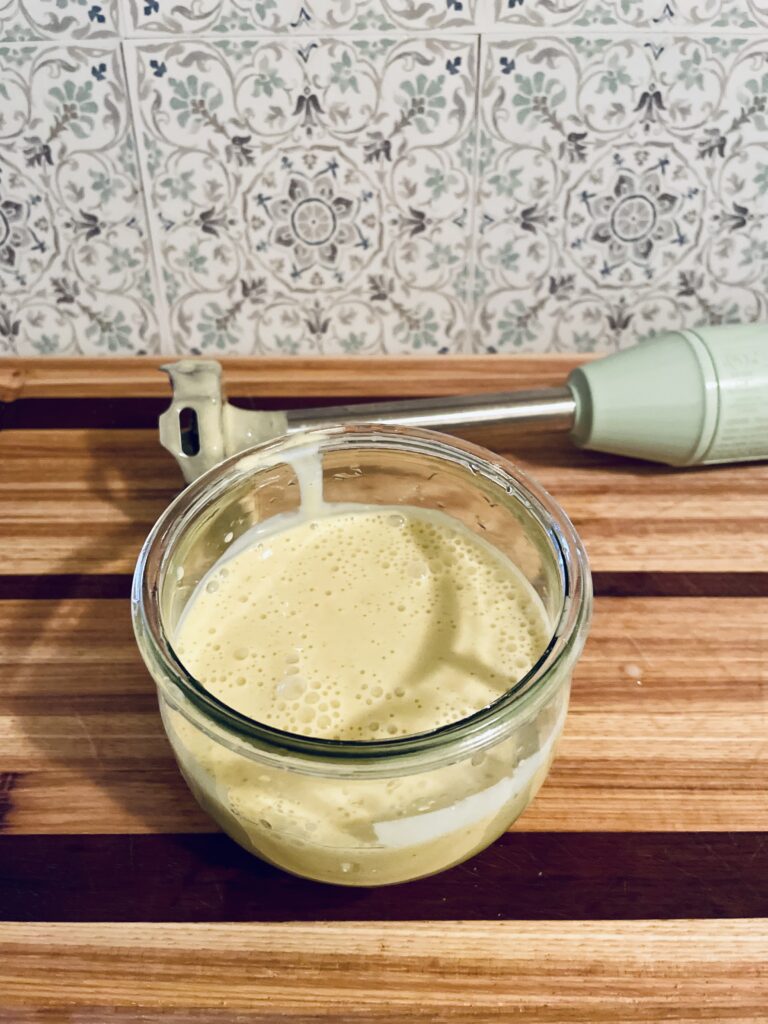
Shop this post:
**This post may contain affiliate links, which means I make a small commission at no extra cost to you**
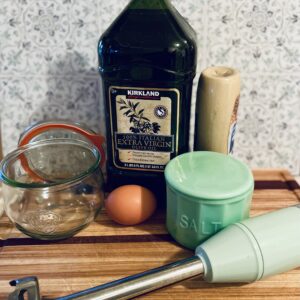
Healthy Mayonnaise
Equipment
- Immersion Blender
- Wide Mouth Glass Jar
Ingredients
- 1 egg
- 1 cup oil
- 2 tsp lemon juice
- 1/2 tsp mustart
- 1/2 tsp salt
Instructions
- Add 1 egg, 2 teaspoons of lemon juice, 1/2 teaspoon of mustard, 1/2 teaspoon of salt, and 1 cup of avocado oil to a wide mouth mason jar.
- Next, take an immersion blender and beginning at the bottom of the jar blend the egg until it is white and creamy. This will take about 1 minute.
- Next move the blender up to incorporate the oil. Continue blending until it is fully mixed, about 1-2 additional minutes.
Notes
What if my mayo is water?
- No worries! This has actually happened to me twice over the years of making many batches of mayo.
- When it does I use the watery messed up mayo as the oil and try again.
- So, I put the egg, lemon juice, and mustard in the bottom of another widemouth jar and then pour the watery mayo over and blend again. It ends up having two eggs, but I don’t add the salt the second time around since it is only for flavor.